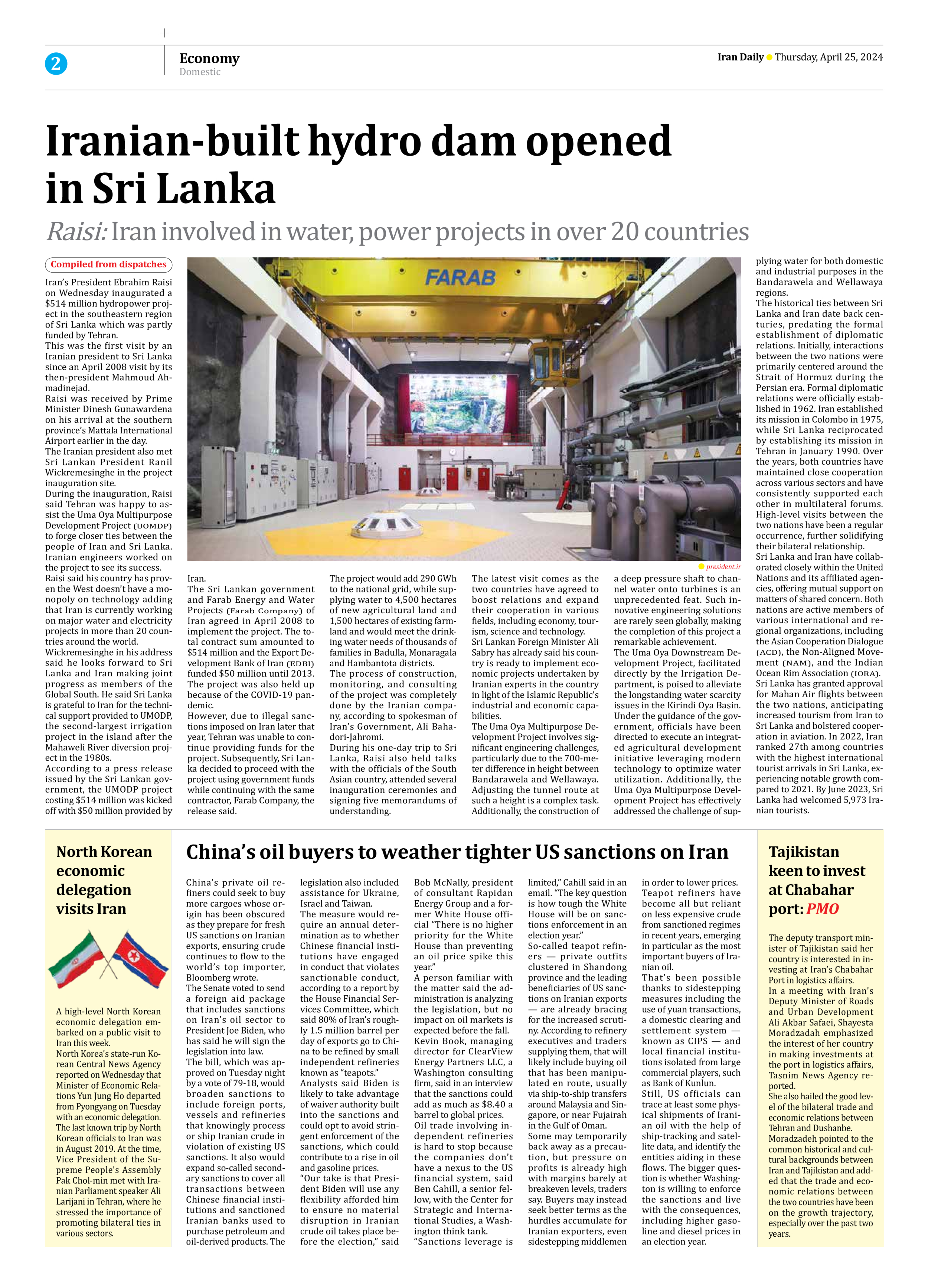
Copy in clipboard...
China’s oil buyers to weather tighter US sanctions on Iran
The Senate voted to send a foreign aid package that includes sanctions on Iran’s oil sector to President Joe Biden, who has said he will sign the legislation into law.
The bill, which was approved on Tuesday night by a vote of 79-18, would broaden sanctions to include foreign ports, vessels and refineries that knowingly process or ship Iranian crude in violation of existing US sanctions. It also would expand so-called secondary sanctions to cover all transactions between Chinese financial institutions and sanctioned Iranian banks used to purchase petroleum and oil-derived products. The legislation also included assistance for Ukraine, Israel and Taiwan.
The measure would require an annual determination as to whether Chinese financial institutions have engaged in conduct that violates sanctionable conduct, according to a report by the House Financial Services Committee, which said 80% of Iran’s roughly 1.5 million barrel per day of exports go to China to be refined by small independent refineries known as “teapots.”
Analysts said Biden is likely to take advantage of waiver authority built into the sanctions and could opt to avoid stringent enforcement of the sanctions, which could contribute to a rise in oil and gasoline prices.
“Our take is that President Biden will use any flexibility afforded him to ensure no material disruption in Iranian crude oil takes place before the election,” said Bob McNally, president of consultant Rapidan Energy Group and a former White House official “There is no higher priority for the White House than preventing an oil price spike this year.”
A person familiar with the matter said the administration is analyzing the legislation, but no impact on oil markets is expected before the fall.
Kevin Book, managing director for ClearView Energy Partners LLC, a Washington consulting firm, said in an interview that the sanctions could add as much as $8.40 a barrel to global prices.
Oil trade involving independent refineries is hard to stop because the companies don’t have a nexus to the US financial system, said Ben Cahill, a senior fellow, with the Center for Strategic and International Studies, a Washington think tank.
“Sanctions leverage is limited,” Cahill said in an email. “The key question is how tough the White House will be on sanctions enforcement in an election year.”
So-called teapot refiners — private outfits clustered in Shandong province and the leading beneficiaries of US sanctions on Iranian exports — are already bracing for the increased scrutiny. According to refinery executives and traders supplying them, that will likely include buying oil that has been manipulated en route, usually via ship-to-ship transfers around Malaysia and Singapore, or near Fujairah in the Gulf of Oman.
Some may temporarily back away as a precaution, but pressure on profits is already high with margins barely at breakeven levels, traders say. Buyers may instead seek better terms as the hurdles accumulate for Iranian exporters, even sidestepping middlemen in order to lower prices.
Teapot refiners have become all but reliant on less expensive crude from sanctioned regimes in recent years, emerging in particular as the most important buyers of Iranian oil.
That’s been possible thanks to sidestepping measures including the use of yuan transactions, a domestic clearing and settlement system — known as CIPS — and local financial institutions isolated from large commercial players, such as Bank of Kunlun.
Still, US officials can trace at least some physical shipments of Iranian oil with the help of ship-tracking and satellite data, and identify the entities aiding in these flows. The bigger question is whether Washington is willing to enforce the sanctions and live with the consequences, including higher gasoline and diesel prices in an election year.







